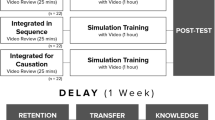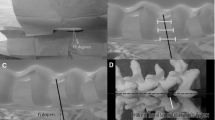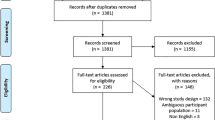Abstract
Background: Invention and mastery learning approaches differ in their foundational educational paradigms, proposed mechanisms of learning, and potential impacts on learning outcomes. They also differ in their resource requirements. We explored the relative effects of ‘invent and problem-solve, followed by instruction’ (PS-I) learning compared to mastery learning (i.e., standards-based training) on immediate post-test and Preparation for Future Learning (PFL) assessments. PFL assessments measure learners’ capacity to use their existing knowledge and strategies to learn about and solve novel problems. Methods: In this non-inferiority trial, pre-clerkship medical students were randomized to either PS-I, Mastery Learning (ML), or instruction then practice (CON) during simulation-based training of infant lumbar puncture (LP). After a 2-week delay, participants returned to learn and complete a PFL assessment of simulated Knee Arthrocentesis. Two independent raters assessed performances with a 5-point global rating scale. Results: Based on our non-inferiority margin, analyses showed that for both the immediate post-test and the PFL assessment, the PS-I condition resulted in non-inferior outcomes relative to the ML condition. Results for the CON condition were mixed with respect to non-inferiority compared to either PS-I or ML. Conclusions: We suggest cautiously that the PS-I approach was not inferior to the ML approach, based on skill acquisition and PFL assessment outcomes. With ML anecdotally and empirically requiring more time, greater faculty involvement, and higher costs, our findings question the preference ML has received relative to other instructional designs, especially in the healthcare simulation community. We encourage researchers to study the educational and resource impacts of instructional designs using non-inferiority designs.


Similar content being viewed by others
References
Auerbach, M., Chang, T., Fein, D., White, M., Mehta, R., Gerard, J. … Kessler, D. (2014). A comprehensive infant lumber puncture novice procedural skills training package: an INSPIRE simulation-based procedural skills training package. MedEdPORTAL, 10
Belenky, D. M., & Nokes-Malach, T. J. (2012). Motivation and Transfer: The Role of Mastery-Approach Goals in Preparation for Future Learning. Journal of the Learning Sciences, 21(3), 399–432. https://doi.org/10.1080/10508406.2011.651232
Bloom, B. S. (1973). Recent developments in mastery learning. Educational Psychologist, 10(2), 53–57. https://doi.org/10.1080/00461527309529091
Bransford, J. D., Brown, A. L., & Cocking, R. R. (2000). How People Learn: Brain, Mind, Experience, and School. The National Academies Press. https://doi.org/10.17226/9853
Bransford, J. D., & Schwartz, D. L. (1999). Chapter 3: Rethinking Transfer: A Simple Proposal With Multiple Implications. Review of Research in Education, 24(1), 61–100. https://doi.org/10.3102/0091732X024001061
Brydges, R., Nair, P., Ma, I., Shanks, D., & Hatala, R. (2012). Directed self-regulated learning versus instructor‐regulated learning in simulation training. Medical education, 46(7), 648–656
Cepeda, N. J., Pashler, H., Vul, E., Wixted, J. T., & Rohrer, D. (2006). Distributed practice in verbal recall tasks: A review and quantitative synthesis. Psychological Bulletin, 132(3), 354–380. https://doi.org/10.1037/0033-2909.132.3.354
Chaudhary, Z. K., Mylopoulos, M., Barnett, R., Sockalingam, S., Hawkins, M., O’Brien, J. D., & Woods, N. N. (2019). Reconsidering Basic: Integrating Social and Behavioral Sciences to Support Learning. Academic Medicine: Journal of the Association of American Medical Colleges, 94(11S Association of American Medical Colleges Learn Serve Lead: Proceedings of the 58th Annual Research in Medical Education Sessions), S73–S78. https://doi.org/10.1097/ACM.0000000000002907
Cheung, J. J. H., Kulasegaram, K. M., Woods, N. N., & Brydges, R. (2019). Why Content and Cognition Matter: Integrating Conceptual Knowledge to Support Simulation-Based Procedural Skills Transfer. Journal of General Internal Medicine, 34(6), 969–977. https://doi.org/10.1007/s11606-019-04959-y
Cheung, J. J. H., Kulasegaram, K. M., Woods, N. N., Moulton, C. A., Ringsted, C. V., & Brydges, R. (2018). Knowing How and Knowing Why: testing the effect of instruction designed for cognitive integration on procedural skills transfer. Advances in Health Sciences Education, 23(1), 61–74. https://doi.org/10.1007/s10459-017-9774-1
Cheung, J. J. H., Kulasegaram, K., Woods, N., & Brydges, R. (2021). Making Concepts Material: A Randomized Trial Exploring Simulation as a Medium to Enhance Cognitive Integration and Transfer of Learning. Simulation in Healthcare: The Journal of the Society for Simulation in Healthcare, Publish Ah. https://doi.org/10.1097/SIH.0000000000000543
Cohen, E. R., Feinglass, J., Barsuk, J. H., Barnard, C., O’Donnell, A., McGaghie, W. C., & Wayne, D. B. (2010). Cost savings from reduced catheter-related bloodstream infection after simulation-based education for residents in a medical intensive care unit. Simulation in Healthcare: Journal of the Society for Simulation in Healthcare, 5(2), 98–102. https://doi.org/10.1097/SIH.0b013e3181bc8304
Cook, D. A., Brydges, R., Zendejas, B., Hamstra, S. J., & Hatala, R. (2013). Mastery learning for health professionals using technology-enhanced simulation: a systematic review and meta-analysis. Academic medicine, 88(8), 1178–1186
Downing, S. M., Tekian, A., & Yudkowsky, R. (2006). RESEARCH METHODOLOGY: Procedures for Establishing Defensible Absolute Passing Scores on Performance Examinations in Health Professions Education. Teaching and Learning in Medicine, 18(1), 50–57. https://doi.org/10.1207/s15328015tlm1801_11
Emmerson, J., Todd, S., & Brown, J. M. (2021). Recommendations for designing and analysing multi-arm non-inferiority trials: a review of methodology and current practice. Trials, 22(1), 1–16
Gerard, J. M., Kessler, D. O., Braun, C., Mehta, R., Scalzo, A. J., & Auerbach, M. (2013). Validation of global rating scale and checklist instruments for the infant lumbar puncture procedure. Simulation in Healthcare, 8(3), 148–154. https://doi.org/10.1097/SIH.0b013e3182802d34
Gott, S. P., of, Pittsburgh, L., Research, U., & Center, D. (1993). A Naturalistic Study of Transfer: Adaptive Expertise in Technical Domains. Learning Research and Development Center, University of Pittsburgh. https://books.google.ca/books?id=J3BiHQAACAAJ
Hatano, G., & Inagaki, K. (1986). Two courses of expertise. Child development and education in Japan (pp. 262–272). W H Freeman/Times Books/ Henry Holt & Co
Howard, D. R., Brown, J. M., Todd, S., & Gregory, W. M. (2018). Recommendations on multiple testing adjustment in multi-arm trials with a shared control group. Statistical methods in medical research, 27(5), 1513–1530
Kapur, M. (2016). Examining Productive Failure, Productive Success, Unproductive Failure, and Unproductive Success in Learning. Educational Psychologist, 51(2), 289–299. https://doi.org/10.1080/00461520.2016.1155457
Klasen, M., & Sopka, S. (2021). Demonstrating equivalence and non-inferiority of medical education concepts. Medical Education, 55(4), 455–461. https://doi.org/10.1111/medu.14420
Kulasegaram, K., Axelrod, D., Ringsted, C., & Brydges, R. (2018). Do One Then See One: Sequencing Discovery Learning and Direct Instruction for Simulation-Based Technical Skills Training. Academic Medicine, 93(11S), S37–S44. https://doi.org/10.1097/ACM.0000000000002378
Lane, D. M. (2020). Confidence Interval on the Difference Between Means. Retrieved December 11, from http://onlinestatbook.com/2/estimation/difference_means.html
Lee, H. S., & Anderson, J. R. (2013). Student Learning: What Has Instruction Got to Do With It? Annual Review of Psychology, 64(1), 445–469. https://doi.org/10.1146/annurev-psych-113011-143833
Lisk, K., Agur, A. M. R., & Woods, N. N. (2016). Exploring cognitive integration of basic science and its effect on diagnostic reasoning in novices. Perspectives on Medical Education, 5(3), 147–153. https://doi.org/10.1007/s40037-016-0268-2
Loibl, K., Roll, I., & Rummel, N. (2017). Towards a Theory of When and How Problem Solving Followed by Instruction Supports Learning. Educational Psychology Review, 29(4), 693–715. https://doi.org/10.1007/s10648-016-9379-x
Manzone, J. C., Mylopoulos, M., Ringsted, C., & Brydges, R. (2021). How supervision and educational supports impact medical students’ preparation for future learning of endotracheal intubation skills: a non-inferiority experimental trial. BMC Medical Education, 21(1), 102. https://doi.org/10.1186/s12909-021-02514-0
Martin, J. A., Regehr, G., Reznick, R., MacRae, H., Murnaghan, J., Hutchison, C., & Brown, M. (1997). Objective structured assessment of technical skill (OSATS) for surgical residents. The British Journal of Surgery, 84(2), 273–278. https://doi.org/10.1046/j.1365-2168.1997.02502.x
McGaghie, W. C., Issenberg, S. B., Petrusa, E. R., & Scalese, R. J. (2010). A critical review of simulation-based medical education research: 2003-2009. Medical Education, 44(1), 50–63. https://doi.org/10.1111/j.1365-2923.2009.03547.x
McGaghie, W. C., Issenberg, S. B., Barsuk, J. H., & Wayne, D. B. (2014). A critical review of simulation-based mastery learning with translational outcomes. Medical education, 48(4), 375–385
Mylopoulos, M., Brydges, R., Woods, N. N., Manzone, J., & Schwartz, D. L. (2016). Preparation for future learning: a missing competency in health professions education? Medical Education, 50(1), 115–123. https://doi.org/10.1111/medu.12893
Mylopoulos, M., & Regehr, G. (2009). How student models of expertise and innovation impact the development of adaptive expertise in medicine. Medical Education, 43(2), 127–132. https://doi.org/10.1111/j.1365-2923.2008.03254.x
Mylopoulos, M., Steenhof, N., Kaushal, A., & Woods, N. N. (2018). Twelve tips for designing curricula that support the development of adaptive expertise. Medical Teacher, 40(8), 850–854. https://doi.org/10.1080/0142159X.2018.1484082
Mylopoulos, M., & Woods, N. N. (2014). Preparing medical students for future learning using basic science instruction. Medical Education, 48(7), 667–673. https://doi.org/10.1111/medu.12426
Nomura, O., Onishi, H., & Kato, H. (2017). Medical students can teach communication skills–a mixed methods study of cross-year peer tutoring. BMC medical education, 17(1), 1–8
Roll, I., Holmes, N. G., Day, J., & Bonn, D. (2012). Evaluating metacognitive scaffolding in Guided Invention Activities. Instructional Science, 40(4), 691–710. https://doi.org/10.1007/s11251-012-9208-7
Sawyer, T., White, M., Zaveri, P., Chang, T., Ades, A., French, H. … Kessler, D. (2015). Learn, see, practice, prove, do, maintain: an evidence-based pedagogical framework for procedural skill training in medicine. Academic Medicine: Journal of the Association of American Medical Colleges, 90(8), 1025–1033. https://doi.org/10.1097/ACM.0000000000000734
Schwartz, D. L., Bransford, J. D., & Sears, D. (2005). Efficiency and innovation in transfer
Schwartz, D. L., & Martin, T. (2004). Inventing to Prepare for Future Learning: The Hidden Efficiency of Encouraging Original Student Production in Statistics Instruction. Cognition and Instruction, 22(2), 129–184. https://doi.org/10.1207/s1532690xci2202_1
Sealed Envelope Ltd (2012). Power calculator for continuous outcome non-inferiority trial. https://www.sealedenvelope.com/power/continuous-noninferior/
Steenhof, N., Woods, N. N., Van Gerven, P. W. M., & Mylopoulos, M. (2019). Productive failure as an instructional approach to promote future learning. Advances in Health Sciences Education, 24(4), 739–749. https://doi.org/10.1007/s10459-019-09895-4
Thomsen, T. W., Shen, S., Shaffer, R. W., & Setnik, G. S. (2006). Arthrocentesis of the Knee. New England Journal of Medicine, 354(19), e19. https://doi.org/10.1056/NEJMvcm051914
Tolsgaard, M. G., & Ringsted, C. (2014). Using equivalence designs to improve methodological rigor in medical education trials. Medical Education, 48(2), 220–221. https://doi.org/10.1111/medu.12313
Tolsgaard, M. G., Tabor, A., Madsen, M. E., Wulff, C. B., Dyre, L., Ringsted, C., & Nørgaard, L. N. (2015). Linking quality of care and training costs: cost-effectiveness in health professions education. Medical Education, 49(12), 1263–1271. https://doi.org/10.1111/medu.12882
Walker, E., & Nowacki, A. S. (2011). Understanding equivalence and noninferiority testing. Journal of General Internal Medicine, 26(2), 192–196. https://doi.org/10.1007/s11606-010-1513-8
Walzak, A., Bacchus, M., Schaefer, J. P., Zarnke, K., Glow, J., Brass, C. … Ma, I. W. Y. (2015). Diagnosing technical competence in six bedside procedures: comparing checklists and a global rating scale in the assessment of resident performance. Academic Medicine: Journal of the Association of American Medical Colleges, 90(8), 1100–1108. https://doi.org/10.1097/ACM.0000000000000704
Yudkowsky, R., Park, Y. S., Lineberry, M., Knox, A., & Ritter, E. M. (2015). Setting mastery learning standards. Academic Medicine: Journal of the Association of American Medical Colleges, 90(11), 1495–1500. https://doi.org/10.1097/acm.0000000000000887
Acknowledgements
We wish to thank the following colleagues for their insights and contributions throughout various stages of this project: Dr. Andrea Hunter, Annette Brown, Dr. Matthew Sibbald, Dr. Zahira Khalid, Dr. Daisy Liu, Marina Sadik, Meera Mahmud. Dr. Brydges is generously funded by the Professorship in Technology-Enabled Education at St. Michael’s Hospital, Unity Health Toronto.
Funding
Postgraduate Medical Education, Faculty of Health Sciences, McMaster University.
Author information
Authors and Affiliations
Contributions
AF led research design, data collection, and analysis. RB and LG provided conceptual, methodological, analytic, and interpretive input and guidance throughout. RB led the writing of the manuscript. All authors contributed to the critical revision of the paper, approved the final manuscript for publication, and have agreed to be accountable for all aspects of the work in ensuring that questions related to the accuracy or integrity of any part of it are appropriately investigated and resolved.
Corresponding author
Ethics declarations
Conflict of interest
None.
Additional information
Publisher’s Note
Springer Nature remains neutral with regard to jurisdictional claims in published maps and institutional affiliations.
Appendices
Appendices
Appendix 1: Lumbar Puncture Global Rating Scale (GRS)

Appendix 2: Knee Arthrocentesis Global Rating Scale (GRS)

Rights and permissions
About this article
Cite this article
Brydges, R., Fiume, A. & Grierson, L. Mastery versus invention learning: impacts on future learning of simulated procedural skills. Adv in Health Sci Educ 27, 441–456 (2022). https://doi.org/10.1007/s10459-022-10094-x
Received:
Accepted:
Published:
Issue Date:
DOI: https://doi.org/10.1007/s10459-022-10094-x




